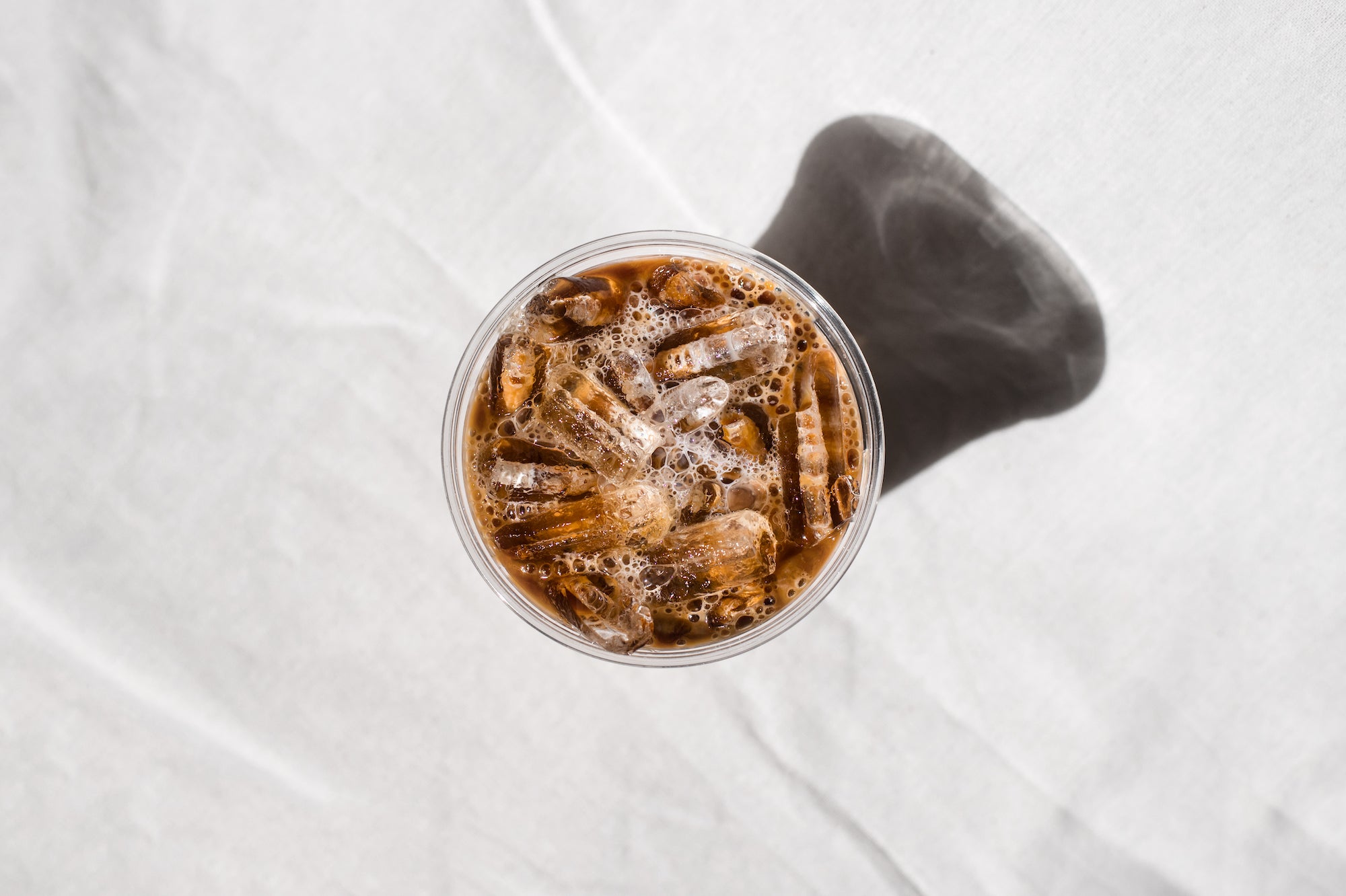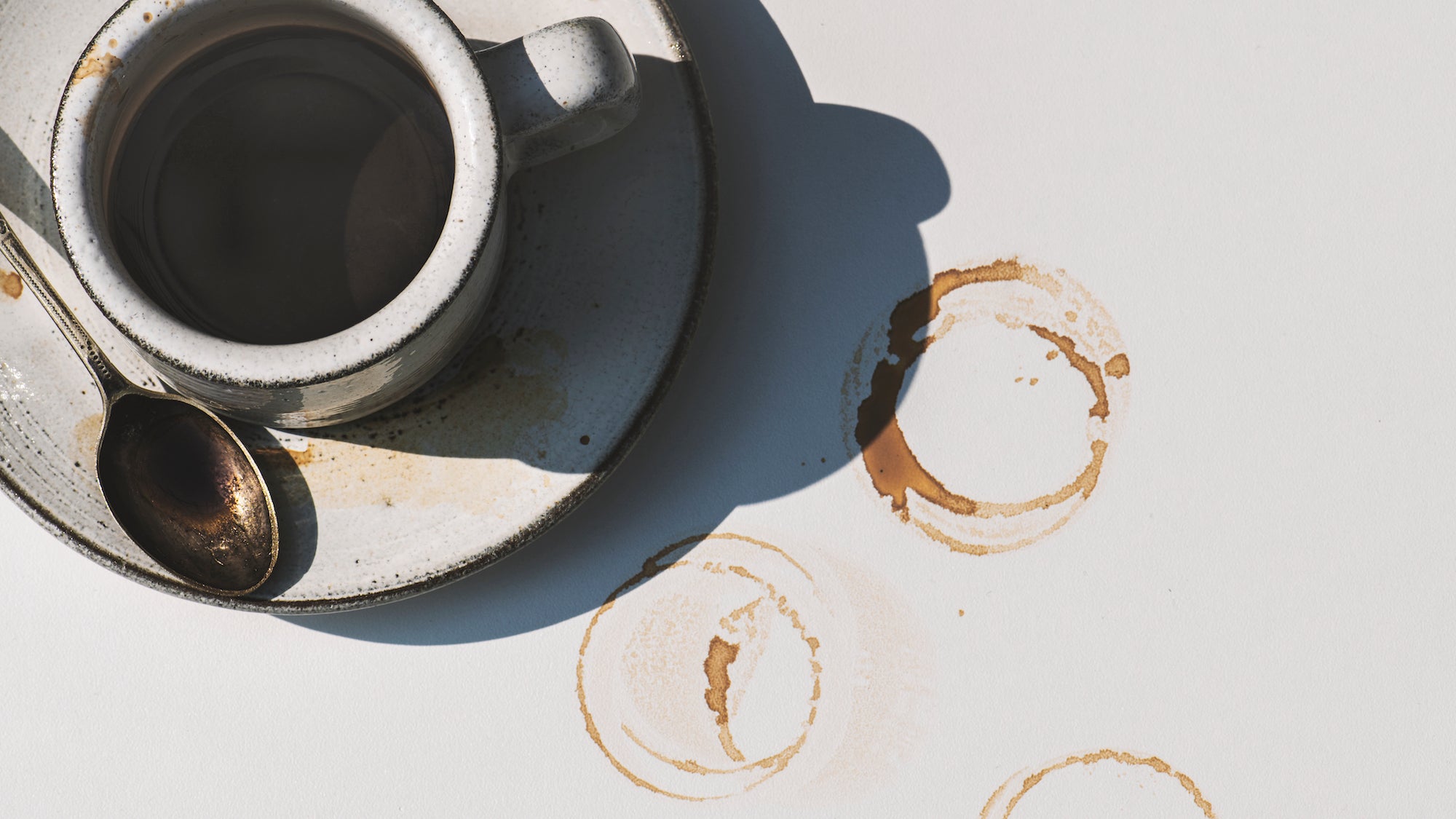Caffeine is the world’s most widely consumed stimulant, invigorating our mornings and serving as a loyal ally during those midday lulls.
Although synthetic caffeine is commonly added to many products, caffeine can also be found naturally in several foods and beverages. We’ll explore those sources shortly, but first, let’s review some basics.
What Is Caffeine Anyway?
Caffeine is a natural compound that belongs to a group of substances known as xanthines. Found in certain plants, it serves various roles in nature, including acting as a natural pesticide and deterring herbivores.
When consumed by humans, caffeine temporarily wards off drowsiness and restores alertness, making it a favorite tool for many to combat fatigue and enhance focus. It achieves this effect by blocking the action of adenosine, a neurotransmitter that promotes relaxation and sleepiness.[*]
What Are the Health Benefits of Caffeine?
Beyond the stimulating effects of caffeine, this compound has been the subject of countless studies examining its potential health benefits, some of which include:
- Reduced risk of dementia: Several studies have also found that drinking moderate amounts of coffee (2-3 cups daily) is associated with a lower risk of dementia and cognitive decline.[*][*]
- Reduced depression: Caffeine acts as a mild antidepressant by boosting the production of certain neurotransmitters like serotonin, dopamine, and noradrenaline. One study found that compared to drinking one cup of coffee daily, drinking at least four cups of coffee daily was associated with a significantly lower risk of depression.[*]
- Enhanced metabolism: Due to its stimulant effects on the central nervous system, caffeine has the potential to boost metabolism by as much as 11% and enhance fat burning by up to 13%.[*][*][*] This may support weight loss over time.
- Improved heart health: Contrary to popular belief, caffeine does not increase the risk of heart disease.[*] In fact, research indicates that men and women who consume between 1-4 cups of coffee daily—which equates to roughly 100-400 mg of caffeine—have a 16–18% reduced risk of cardiovascular disease.[*]
- Enhanced athletic performance: Caffeine can enhance the utilization of fat as an energy source. This is advantageous as it may help the glucose stored in muscles last longer, potentially extending the time before muscle fatigue sets in.[*][*]
Natural Sources of Caffeine
With the basics brewing in your mind, let’s explore the various natural sources of caffeine and see just how much of a “buzz” each one brings.
#1: Coffee
There’s no doubt coffee is the most well-known and popular caffeinated beverage out there. Roughly 7 out of 10 Americans enjoy coffee every week, and 62% have it daily—and not just a sip or two. On average, Americans drink more than three cups of coffee daily.[*]
Coffee is brewed from roasted coffee beans—the seeds of berries from the Coffea plant where the natural caffeine is found. In a standard 8-ounce cup of coffee, you’ll find about 95 mg of natural caffeine.[*]
For a more concentrated coffee shot, you can reach for espresso, which packs about 125 mg of caffeine per 2 ounces (or 500 mg per 8 ounces).[*]
Interestingly, even decaffeinated coffee isn’t completely devoid of this stimulant. The Food and Drug Administration (FDA) stipulates that when comparing brewed decaf to regular coffee, decaf coffee should have about 97% of its caffeine eliminated.[*] That typically translates to 2-3 mg of caffeine in an 8-ounce cup of decaf coffee.[*]
Beyond its energizing kick, coffee is packed with potent antioxidants, notably hydrocinnamic acids and polyphenols. Hydrocinnamic acids excel at combating free radicals and warding off oxidative stress.[*] This could potentially lower the chances of ailments like heart disease and cancer.
#2: Black Tea
Produced from the Camellia sinensis plant, black tea undergoes a comprehensive oxidation process, which gives it a distinctive dark color and rich flavor profile. Popular worldwide, black tea varieties include Assam, Darjeeling, and Earl Grey.
Black tea contains about 50 mg of caffeine per 8 ounces, offering a moderate lift for tea enthusiasts.[*]
#3: Green Tea
Green tea, made from Camellia sinensis leaves, has been revered in Asian cultures for millennia. Its caffeine content is generally milder than black tea, typically offering around 30 mg of caffeine per 8 ounces.[*]
Green tea is also well-known for its antioxidant content, particularly a polyphenol called epigallocatechin-3-gallate (EGCG), which may help prevent cell damage and protect the brain from neurodegeneration.[*][*]
#4: Yerba Mate
Native to South America, yerba mate is a tea made from the leaves of the Ilex paraguariensis plant. Consumed either hot or cold, it’s known for providing a balanced energy boost. It’s also a rich source of polyphenols, particularly caffeoyl derivatives, with strong antioxidant properties.[*]
Yerba Mate provides about 80 mg of caffeine per 8 ounces, positioning it between most teas and coffees in strength.[*]
#5: Matcha Powder
A unique form of green tea, matcha involves grinding the entire tea leaf into a fine powder. This means when you drink a matcha latte, you’re consuming the whole leaf and, consequently, a more potent dose of caffeine compared to regular green tea.
On average, matcha boasts 19–44 mg of caffeine per gram. Given that a standard serving size for matcha ranges from 2–4 grams (equivalent to 1/2–1 teaspoon), you'd be sipping on about 38–176 mg of caffeine with every cup.[*]
#6: Chocolate
Chocolate is a beloved treat derived from the roasted seeds of the cacao tree, offering a rich taste and often combined with sweeteners and other ingredients to create various flavors and textures.
One of the lesser-known attributes of chocolate is its caffeine content, which is naturally found in cacao beans. The caffeine content in chocolate differs based on the type:
- Dark chocolate contains 23 mg of caffeine per ounce[*]
- Milk chocolate contains 6 mg of caffeine per ounce[*]
- White chocolate contains zero caffeine[*]
#7: Kolu Nut
Indigenous to the tropical rainforests of Africa, the kola nut is rich in caffeine. Historically chewed in many West African cultures for its stimulating effects, it has also found its way into the Western world, notably as a flavoring agent and caffeine source in certain sodas and energy drinks.
A single nut boasts more caffeine than two hefty cups of coffee.[*] In places like the United States and Europe, you're more apt to come across kola nut extract than the actual fresh nut.
#8: Guarana
Guarana (Paullinia cupana) is a climbing plant native to the Amazon basin, especially prevalent in Brazil. It’s best known for its fruit, which is about the size of a coffee berry. Each fruit contains seeds that are rich in caffeine. In fact, guarana seeds are thought to contain four to six times more caffeine than coffee beans.
Most guarana produced today (70%) is used by the beverage industry in soft and energy drinks, while the remaining 30% is turned into powder supplements.[*]
#9: IQJOE
IQJOE offers a modern twist on your caffeine ritual. This distinctive blend is formulated from premium dark-roasted Brazilian beans and enriched with functional ingredients. Each packet of IQJOE contains:
- 200 mg of Natural Caffeine for a bold energy boost.
- 750 mg of Magtein® (L-threonate) for cognition and mood support.
- 250 mg of 8x-Concentrated Lion’s Mane Mushroom for brain health.
Beyond their individual benefits, the magnesium and lion’s mane may serve to balance the caffeine’s energizing properties, reducing the potential for side effects like jitters and delivering a more steady, smooth energy boost.
Simply pour one packet of IQJOE instant coffee into 8-12 oz hot water, stir until dissolved, and enjoy. IQJOE offers four delightful flavors: Original Black, Vanilla Spice, Toasted Hazelnut, and Caffè Mocha. All flavors are keto- and vegan-friendly and free of sugar, gluten, soy, and GMOs.
With IQJOE in hand, every sip becomes a step towards enhanced vitality and cognitive well-being.
Energy as Nature Intended
From traditional brews to modern blends, your choices of natural caffeine sources are as varied as they are invigorating. As you navigate your day, remember the power of nature’s energy boosters and find the perfect pick-me-up that suits your palate and purpose.
It’s important to note that caffeine consumption can affect individuals differently. Always check in with your doctor before making a significant change to your intake.
Written by Katie Koschalk, a health and wellness writer, certified holistic nutritionist, and certified personal trainer based in California.




